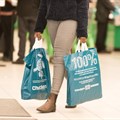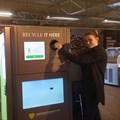#BizTrends2019: The humanising factor

Here are four consumer needs we’ll also be responding to as marketers in 2019.
1) Intellectual snack breaks with podcasts
Taking intellectual snack breaks in 2019 will be a necessity to counteract the social media junk food we’re force-fed at every consumer touch-point. Where will thoughtful people go when they need to take a break? Very likely somewhere that doesn’t require a screen and provides snackable content, as podcasts do.
Just the iTunes podcast stats are impressive, it is home to over 525,000 active shows, with more than 18.5 million episodes available, with content in over 100 languages. In an online survey conducted by Nielsen of 7,000 podcast listeners between the ages of 18 to 49 - 69% said the podcast ads made them aware of new products and services.
The five most popular podcasting genres in the US are society and culture, business, comedy, news and politics and health. 19% of listeners increase their listening speed (listen faster) and weekly podcast listeners spend an average of 6 hours 37 minutes per week listening to podcasts. That’s a lot of listening space for brands to tap in to. Check out the informative and thought-provoking Tim Ferris Show to see (and hear) how it’s done.
2) Packaging with care (and collaboration)
Products making eco-friendly waves - like L’Oreal - who has gone as far as launching a new brand called Seed Phytonutrients. The goal for these products is to be separate from L’Oreal and to create “non-synthetic, effective products that support small-scale organic farmers”.
In 2019 you’ll see the words, “craft” and “natural-origin” used more often and if the packaging of Seed products is anything to go by (compostable bottles made from post-consumer paper, combined with clay) the wave of eco-design and product with gather momentum.
Big retailers branching out into natural origin packaging creates opportunities for organic producers and community businesses. Manufacturers will also be more accountable as to where they source their ingredients as consumers can follow the supply chain journey.
3) Planet or plastic
In October 2018 the European Union voted overwhelmingly to ban a wide range of single-use plastics in every member state and New Zealand is the latest country to ban single-use plastic shopping bags, which were being used at an incredible 750 million bags per year - about 150 bags per person.
Closer to home Woolworths, The Shoprite Group and Pick n Pay are making inroads into more sustainable plastic bag offerings with good news from Plastics|SA who say South Africa has an input recycling rate of 43.7% above Europe's recycling figure of 31.1%.
Woolworths’s commitment to zero packaging waste and making all packaging recyclable or reusable by 2022 is ahead of most international retailers and producers whose similar targets are being implemented by 2025.
Woolworths are trial-ing a new in-store bag for R5.50 – reusable and locally-made from recycled materials. Their partner is South African small black enterprise development company, Isikwama, who employ and up-skill people from the local community.
Shoprite and Checkers have introduced 'planet' bags which are 100% recycled and recyclable plastic costing R3.00 each. Their strategy is to give customers using the planet bag 50c off their tab. A lot of their vegetable packaging will also be in biodegradable and compostable containers from November 2018.
Pick n Pay is introducing South Africa’s first compostable supermarket bag made of vegetable matter, including maize and potato starch. These bags break down after about six months compared to the 500 to a thousand years it takes for an ordinary plastic bag decompose.
Another thing we’ll see more of next year is, “reverse vending” machines which eat goods for recycling. They are being tested by Tesco in the UK and Woolworths in its flagship green store, in Palmyra, Cape Town.
Other retailers take note, as Jeremy Sampson, director at Brand Finance Africa, says: "It isn’t unheard of now for shoppers to prefer one supermarket brand over another, purely because they express a serious commitment to recycled content in packaging or encourage their shoppers to bring their bags every time they shop."
4) Embracing Zen (or at least the App)
Trendsetters Virgin Australia have taken mindfulness to a whole new level - 30,000 feet above ground, to be exact. Partnering with Smiling Mind, an app which helps to create a mindful life, the airline now has mediation on their in-flight entertainment, encouraging passengers to practice mindfulness during their flight. But that’s not all; you can also take a yoga class in the Sydney Virgin Australia Lounge while you wait for your next flight.
Mindfulness is on the rise and you’ll find new “zen” apps gently jostling for space on your smart phone in 2019, edging your fitness apps to one side. For brands and retailers, the opportunity lies in capturing the heart of the mindful consumer.
In the words of Poppy Jamie, creator of the Happy Not Perfect app, “How do we make sure that our technology is helping us feel better rather than worse? How can we wake up in the morning and like ourselves first?” Here are the best Mindfulness apps from The New York Times to help you on your way.







































